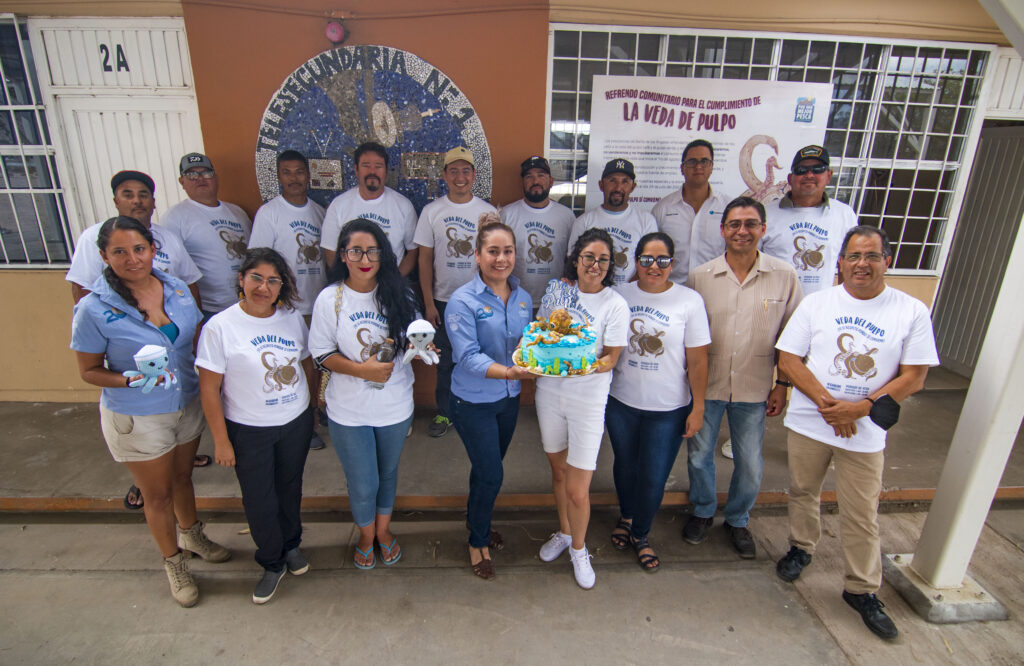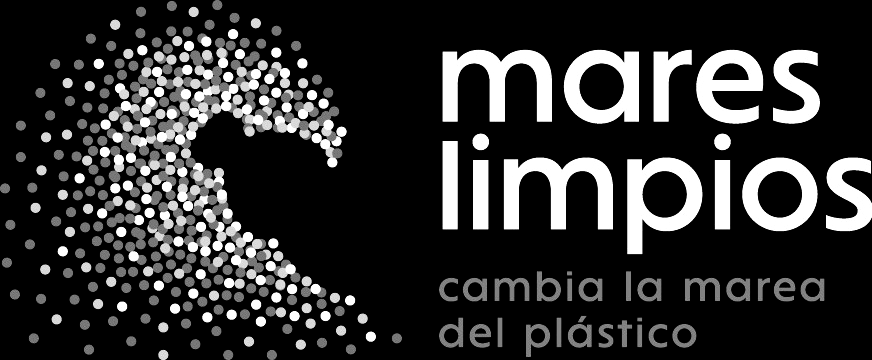The pristine waters of Bahia de los Angeles are home to two emblematic species of the Mexican Pacific. We are referring to the Brown Octopus (Octopus bimaculatus) and the Green Octopus (Octopus hubbsorum). Both play a fundamental role in the food chain of this marine ecosystem, as predators of small crustaceans, bivalves and other animals, and as food for many fish and marine mammals as well. Also, their importance for the region’s economy is due to the fact that both species represent more than 80% of octopus production in Baja California.
However, these animals are highly sensitive to temperature changes, storms and hurricanes, as well as to overexploitation and poaching. That is why, thanks to the interest of local fishermen, in collaboration with the academic sector and our team, the Mexican federal government established an annual ban to prevent the capture of octopus during the reproduction and parental care of eggs. The ban for Brown Octopus begins on August 1 and for Green Octopus on September 1 of each year, concluding on November 30. This fishing ban applies on over 420,000 hectares, the area comprising both the Bahía de los Ángeles Biosphere Reserve, Whale and Salsipuedes Channel (RBBLA) and the Archipelago Marine Zone National Park.
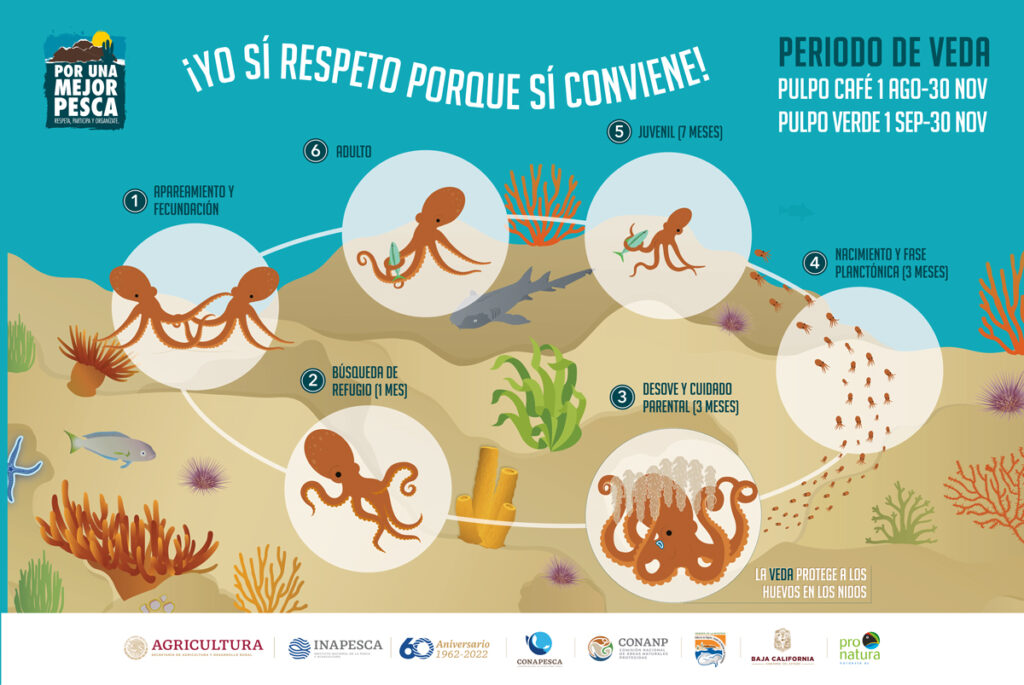
For more than 20 years we have been promoting the management of small-scale fisheries and the habitat of the resources exploited in the fishery. One of our first tasks in Bahía de Los Ángeles was to support the community in the design of the RBBLA, decreed in 2007. Since then we have collaborated regularly with the fishing community, and recently with the entire supply chain including chefs, businesses and restaurants in the region, to raise awareness of the benefits of sustainable octopus fishing. This follow-up at Pronatura Noroeste is led by oceanologist Christian Garcia Portillo, Regional Project Coordinator in Bahia de los Angeles and the Great Islands Region of the Gulf of California. Christian and his team’s tasks include promoting integrated fisheries management, management with communities, local fishermen and authorities. They are also involved in the dissemination and training of the advantages of complying with the octopus closure.
These conservation actions have a positive impact on around 150 fishermen in the area, on more than 300 families that depend on this economic activity, hundreds of businesses and restaurants, and of course, on the lives of thousands of Mexicans who include octopus in their diet. Respecting the ban on Brown octopus and Green octopus allows us to maintain a healthy octopus population and maintain the environmental balance in this region of the Gulf of California and northwestern Mexico.
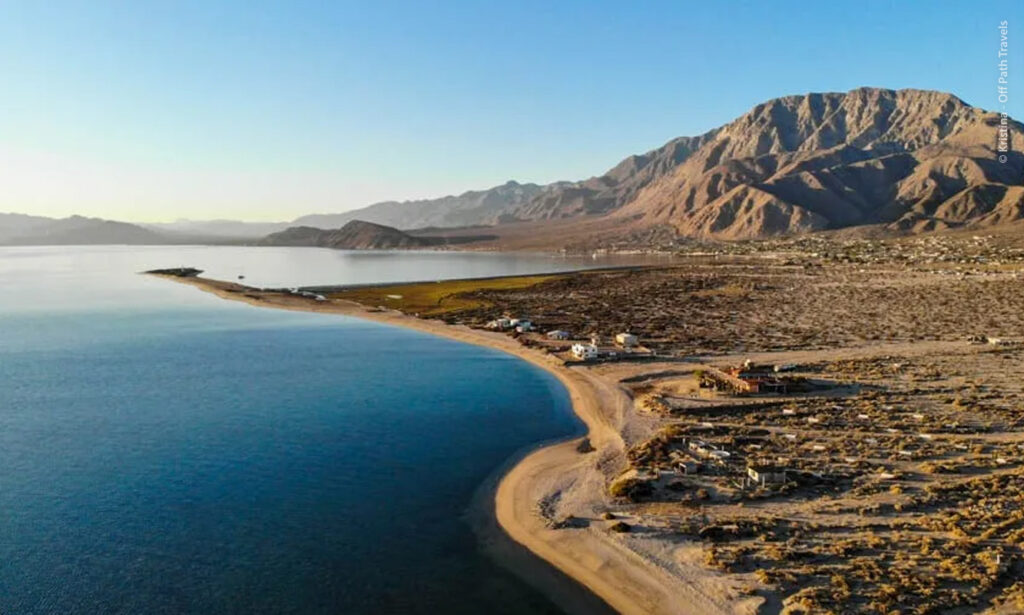
As a background to this fishery management work, we can mention that in 2015 it was the fishermen of Bahía de los Ángeles themselves who implemented the closure on a voluntary basis. In 2016 the closure was formalized through an agreement of the Ministry of Agriculture and Rural Development, which was updated in 2017 to expand the area of application. In February 2022, the Fisheries Management Plan for octopus on the eastern coast of Baja California was published in the Official Journal of the Federation, with which the Mexican government, in coordination with the fishing sector and Pronatura Noroeste, formalized the necessary actions to ensure that the octopus fishery is carried out in a sustainable manner.
As can be seen, the subsistence of the Brown octopus and Green octopus is a commitment of everyone; not only those who fish them, but also those who buy and consume them. Otherwise, these animals would be exposed to suffer strong population losses, and even fall into extinction.
We invite you to collaborate in this important conservation effort.
